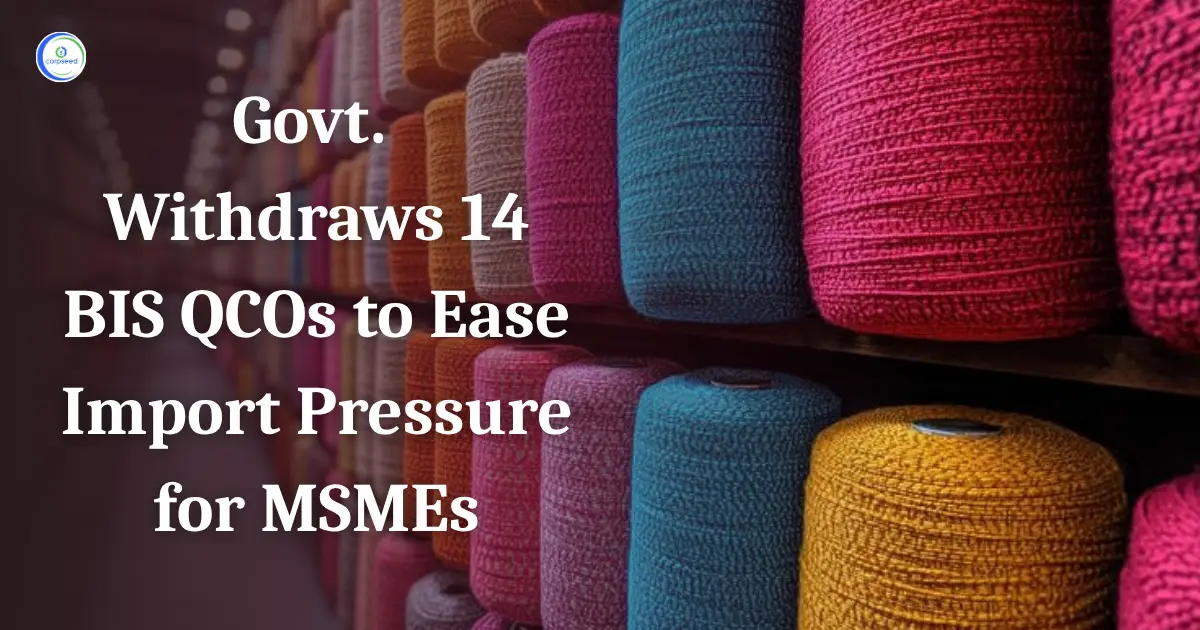The government has withdrawn 14 Quality Control Orders issued under BIS. The move follows concerns raised by industries dealing with chemicals, fibres, and polymers.
Table of Contents
Officials from the Ministry of Chemicals and Fertilisers ensured that the withdrawal would become active once the formal notification is released.
Products such as terephthalic acid, ethylene glycol, polyester yarns, polypropylene, polyethylene, PVC, ABS, and polycarbonate are now out of compulsory BIS certification.
Impact on MSMEs and Raw Material Supply
This decision is expected to simplify import challenges faced by small manufacturers. Many MSMEs in plastics, textiles, and packaging have struggled with high input costs.
Removing mandatory certification will enhance raw material availability. It also removes repeated testing requirements and speeds up approval processes.
Officials explained that streamlined compliance will enhance operational efficiency for both domestic manufacturers and importers. The modification supports competitiveness in global and local markets.
Industry Response and Broader Implications
Industry bodies have welcomed the decision. Many believe it will boost export strength and complement the Make in India vision. Stakeholders noted that numerous these sectors already follow global norms. They feel market discipline and innovation ensure quality without extreme regulation.
Officials stated that the withdrawal shows a responsive policy approach. It balances the requirement for quality with easier business operations. Currently, BIS has 191 QCOs covering 773 products. These are designed to increase product quality, limit low-grade imports, and reinforce Indian manufacturing systems.
The withdrawal of 14 BIS QCOs marks a major shift toward industry-friendly regulation. It minimizes compliance pressure, supports MSMEs, improves supply chains, and aligns quality control with practical business needs.
This portion of the site is for informational purposes only. The content is not legal advice. The statements and opinions are the expression of author, not corpseed, and have not been evaluated by corpseed for accuracy, completeness, or changes in the law.

